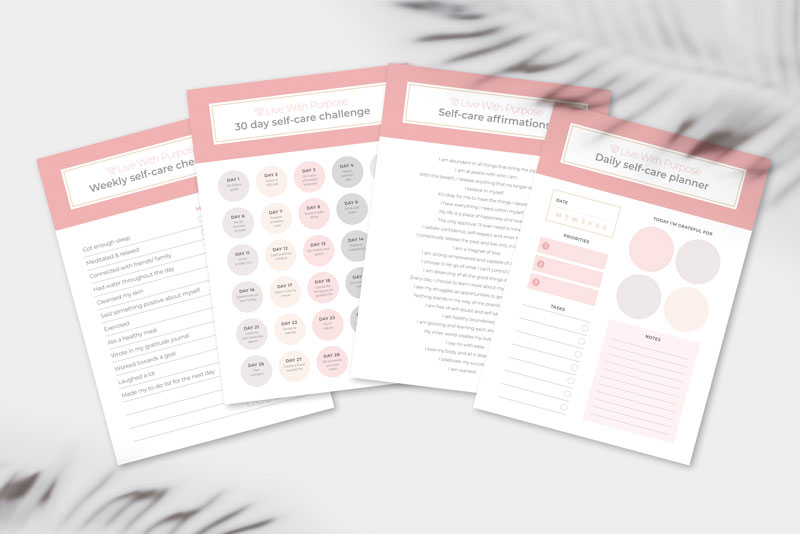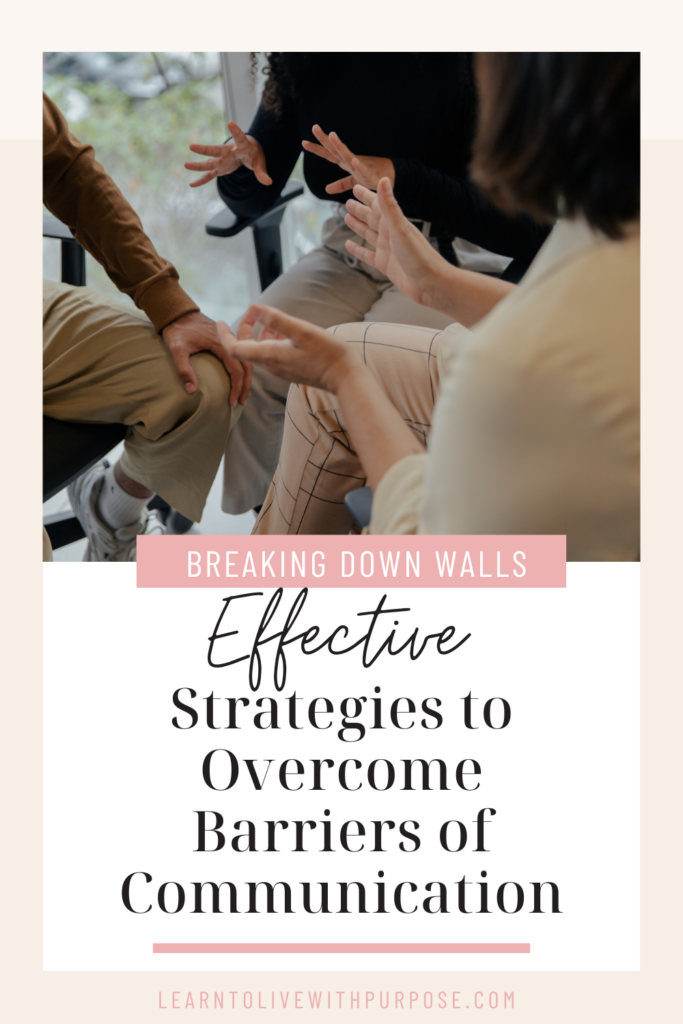
Communication is the lifeblood of relationships, both personal and professional. However, barriers to effective communication can hinder the exchange of ideas, lead to misunderstandings, and strain relationships. 🫠
In this comprehensive guide, we will explore common barriers to communication and provide practical strategies to overcome them.
Whether you’re navigating workplace dynamics, fostering better connections with friends and family, or seeking to improve your overall communication skills, these insights will help you break down the walls that impede effective communication. 🙂
Let’s get started!
Understanding Barriers to Communication:
1. Lack of Clarity and Precision:
One of the fundamental barriers to effective communication is a lack of clarity. Vague or imprecise messages can lead to confusion and misinterpretation. It’s essential to articulate your thoughts clearly, using precise language and providing relevant details to ensure your message is accurately received. 😊
2. Emotional Barriers:
Emotional barriers, such as stress, anxiety, or strong emotions, can impede communication. When individuals are emotionally charged, they may struggle to express themselves clearly or be receptive to others. Managing emotions and creating a calm environment are crucial for effective communication.

3. Cultural and Language Differences:
Cultural and language diversity can create barriers to communication. Differences in language proficiency, communication styles, and cultural norms may lead to misunderstandings.
To overcome this barrier, it’s essential to foster cultural awareness, be patient with language differences, and use clear and straightforward language. 😊
4. Noise and Distractions:
Physical and environmental factors, such as noise and distractions, can interfere with communication. Whether it’s background noise, technological disruptions, or a busy environment, minimising distractions enhances the clarity and effectiveness of communication. 👂

5. Assumptions and Stereotypes:
Preconceived assumptions and stereotypes can create barriers by influencing how we interpret messages. Avoid making assumptions about others’ perspectives or intentions. Instead, approach communication with an open mind, seeking to understand diverse viewpoints without judgment. 🧠
6. Lack of Feedback:
Communication is a two-way process, and the absence of feedback can be a significant barrier. Encourage open dialogue, actively seek input from others, and provide constructive feedback. Creating a feedback loop ensures that messages are received and understood and not going in one ear and out the other.

7. Poor Listening Skills:
Ineffective listening is a pervasive barrier to communication. When individuals fail to actively listen, they miss important details, leading to misunderstandings. Improving listening skills involves giving full attention, avoiding interruptions, and practicing empathy to understand the speaker’s perspective. 😊
8. Power Dynamics and Hierarchies:
Unequal power dynamics or hierarchies within relationships or organisations can stifle open communication. Those in lower positions may feel hesitant to express their thoughts or concerns. Fostering an inclusive and open communication culture helps overcome these power-related barriers. 🫂
Strategies to Overcome Communication Barriers:
1. Prioritise Clarity in Communication:
- Articulate Clearly: Use clear and concise language when conveying your message. Avoid jargon or overly complex terms that may confuse the listener.
- Provide Context: Offer relevant background information to ensure your message is fully understood. Context helps the listener connect the dots and interpret your message accurately.
- Encourage Clarification: Create an environment where others feel comfortable seeking clarification. Encouraging questions can help address potential misunderstandings. 🤗

2. Emotional Intelligence and Regulation:
- Self-Awareness: Develop an understanding of your own emotions. Recognise how emotions may impact your communication style and be mindful of potential emotional triggers.
- Empathy: Practice putting yourself in others’ shoes. Empathetic communication involves understanding others’ perspectives and responding with sensitivity.
- Stress Management: Learn effective stress management techniques, such as deep breathing or mindfulness, to regulate emotions during challenging conversations.
Want to learn more about emotional intelligence? Check out this blog here: How to practice emotional regulation – tips for adults on how to cope
3. Cultural Sensitivity Training:
- Cultural Awareness: Educate yourself about different cultures, communication styles, and customs. A culturally aware approach fosters understanding and respect.
- Language Simplification: In multilingual settings, use simple language and avoid idioms or slang that may not translate well. Visual aids can also help enhance understanding. 🤗
- Inclusivity: Create an inclusive environment that values and celebrates cultural diversity. Encourage open discussions about cultural differences to promote understanding.
4. Create a Distraction-Free Environment:
- Choose Appropriate Settings: Select quiet and conducive environments for important conversations. Minimse disruptions by choosing a location with minimal background noise.
- Digital Etiquette: In digital communication, turn off notifications and ensure a stable internet connection. This helps maintain focus during virtual meetings or discussions. 🧑💻
- Active Presence: Demonstrate active presence by giving your full attention to the speaker. Make eye contact and eliminate distractions to signal that you are fully engaged.

5. Challenge Assumptions and Stereotypes:
- Open-Mindedness: Approach conversations with an open mind, avoiding preconceived notions. Be willing to challenge your assumptions and consider alternative perspectives.
- Promote Diversity and Inclusion: Actively promote diversity and inclusion in your personal and professional spheres. Encourage dialogue that challenges stereotypes and fosters a culture of acceptance.
- Educate Others: Share information that challenges common stereotypes. Education is a powerful tool in breaking down barriers and promoting understanding. 📖
6. Establish a Feedback Culture:
- Encourage Open Dialogue: Foster an environment where open dialogue is encouraged. Create channels for constructive feedback and ensure that all team members feel comfortable expressing their opinions. 🗣️
- Regular Check-Ins: Conduct regular check-ins to gather feedback on communication processes. Identify areas for improvement and implement changes based on the feedback received.
- Model Constructive Feedback: Lead by example by providing constructive feedback. Demonstrating how to give and receive feedback creates a culture of continuous improvement.
7. Enhance Listening Skills:
- Active Listening Techniques: Practice active listening by giving your full attention to the speaker. Avoid interrupting and provide feedback to demonstrate that you are engaged.
- Paraphrasing: Paraphrase the speaker’s message to confirm understanding. This not only clarifies information but also signals to the speaker that you are actively processing their words. 💬
- Empathetic Listening: Cultivate empathetic listening by trying to understand the emotions behind the words. Consider the speaker’s perspective and respond with empathy.

GRAB YOURSELF OUR FREE SELF-CARE BUNDLE!
It’s time to take some time out for yourself love! Check out this four-page bundle of self-care goodness that you can use to relax, refresh and rejuvenate. You deserve it sis.
Pop your info in and download your bundle now ❤️
8. Promote Inclusive Communication:
- Equal Participation: Encourage equal participation in discussions, regardless of hierarchical positions. Create platforms where everyone has the opportunity to voice their opinions and ideas.
- Team-building Activities: Foster a sense of unity within the team through team-building activities. Shared experiences can break down barriers and create a more cohesive group.
- Leadership Modeling: Leaders should model inclusive communication. By demonstrating openness to diverse perspectives and ideas, leaders set the tone for an inclusive organisational culture. 🏬
Real-Life Applications:
1. Workplace Communication:
- Clear Communication Channels: Establish clear communication channels within the workplace. This includes well-defined reporting structures, open-door policies, and regular team meetings.
- Conflict Resolution Workshops: Conduct workshops on conflict resolution to equip employees with the skills needed to navigate disagreements effectively. Emphasise active listening and constructive feedback.👂
2. Personal Relationships:
- Quality Time: In personal relationships, allocate quality time for meaningful conversations. Create an environment where both partners feel comfortable expressing their thoughts and emotions.
- Shared Activities: Engage in shared activities to strengthen bonds. Activities that foster communication, such as cooking together or participating in a hobby, provide opportunities for connection. 👨👩👧
Do you want to know your partner better? Check out our Relationship Planner.
3. Conflict Resolution:
- Mediation Training: Provide mediation training for individuals involved in conflict resolution. Equipping team members with mediation skills enhances their ability to facilitate productive discussions. 🧘♀️
- Establishing Common Ground: Identify common ground during conflicts. Finding shared values or goals can serve as a foundation for resolution and create a more collaborative atmosphere.
Conclusion:
Effectively overcoming barriers to communication involves a multifaceted approach that integrates self-awareness, empathy, and a commitment to fostering an inclusive environment. By implementing these strategies in various aspects of our lives, we can dismantle communication barriers and pave the way for stronger connections, collaboration, and understanding. 🤗
As we actively apply these strategies, we contribute to creating a culture of effective communication—one where diverse perspectives are valued, feedback is embraced, and relationships thrive. Breaking down the walls that hinder communication is a transformative journey that leads to more meaningful connections and a more harmonious and connected world.
Pin this post for a reminder 📌 👇

Related Blog
Things to Say “No” to for you to Live a Happier Life
How to Stop Settling For Less Than You Deserve
How to Become the Best Version of Yourself: A Guide For 20-Somethings
The pace of life in the digital age has quickened drastically over the past few years. Where once we would have to wait until tomorrow to see what tomorrow had in store, we can now get a glimpse of what’s around the corner in real time whenever we want. 😬
The downside of this is that all it takes for us to feel insecure and anxious about the unknown is one single negative tweet or Facebook post that serves as a trigger for something much deeper within us.
We are constantly exposed to new information, images, and trends at a rapid pace, which means we also need to do so at the same rate if we want to keep up. 😒
This anxiety-inducing speed of change poses major challenges for humans who are used to having extended amounts of time to process things before acting on them.
It’s no secret that social media has played a significant role in amplifying these anxieties and keeping them at bay requires more effort than it does other days.
Taking risks should be celebrated not diminished because you’re not following the status quo. Here is a list of ways you can feel better about taking risks and avoid the fear of missing out. 😄
Focus on what you can control
The key to taking risks and keeping yourself grounded during uncertain times is to focus on what you can control rather than what you can’t.
Spending time and energy on something you can’t change is simply asking for a headache. 🥴

The first thing we do when we’re in a new situation is to assess where we stand and where others are in relation to us. However, it’s important to remember that we are not in a bipolar relationship with others, we are all connected to one another and our world in the same way.
This allows all of us to feel the emotions and be in the same space as others at any given time.
Regardless of what may be going on around us, it is imperative that we stop, take a step back, and ask why we’re in a particular situation in the first place. 🤔
What is the goal we are trying to achieve by being in that situation? Why are we doing what we’re doing?
We need to learn to become more aware of the way we interact with the world and what we are doing simply because we’re doing it.
If we begin to take an active role in shaping our own experience we become more empowered and capable of making changes. 😊
Focus on why you’re taking the risk
How we come to take risks is important. There’s nothing wrong with taking risks, in fact, it’s encouraged but it’s important to remember that risks are taken for a reason.
If you aren’t sure about why you’re taking a particular risk, focus on why you’re doing the risk instead.
Wondering why you’re taking a risk can help you identify the purpose and where the thought stems from. Why do you want to take that risk? Was there a specific reason you wanted to take that risk? What’s the purpose of doing it? 🤔
These are all important questions to ask oneself while on a risk-taking journey. If we think more about why we’re taking risks, we can be much more confident in our decisions.

Practice mindfulness and accept uncertainty
Be present.
The amount of time we spend online is significant and this is something that needs to be acknowledged. 😶
If we want to take risks, we need to be present with our actions, thoughts, and feelings. We all have moments where we have to accept the fact that we don’t know what might happen. 🤷♀️
It’s important to remember that this is part of life and that we need to deal with it and accept uncertainty.
Practice mindfulness.
Mindfulness is an important practice that can help you deal with anxiety and accept uncertainty. There are many mindfulness exercises you can try.
These exercises can help you to relax and focus on what’s happening in the present moment. You can also learn to be more mindful of the way you communicate and interact with others.
RELATED: Mindfulness and meditation are one of the chapters in our eBook The Keys to Self-mastery. Read more about it here.
Look for opportunities to grow and learn
Beyond the basic lessons that we all need to learn at some point in life, there are also those serendipitous moments where we can learn about others, about ourselves, and about our world in a meaningful way.
Start paying attention to your surroundings and the people around you. Who are they? What are they doing? What are they thinking? What are they feeling? If you can start paying attention to these things you can begin to draw interesting parallels between your life and the others you meet. 🤝
If you want to grow, you need to look for opportunities to do so. 👀
Opportunities can be both found and created. Opportunities come up when you least expect them and when you’re ready to accept them for what they are.
Opportunities can be found in many forms, such as conversations with people, reading articles, listening to podcasts, watching videos, taking classes, etc.
Never lose hope, even when your situation seems dire. There is always a way out. 🛣️
FREE SELF-CARE BUNDLE

GRAB YOURSELF OUR FREE SELF-CARE BUNDLE!
It’s time to take some time out for yourself love! Check out this four-page bundle of self-care goodness that you can use to relax, refresh and rejuvenate. You deserve it sis.
Pop your info in and download your bundle now ❤️
Stay connected with your community
The best way to keep yourself grounded while taking risks and growing as a person is to stay connected with your community and the people who matter most to you. ❤️
Keep a journal and when you’re feeling anxious or insecure, spend some time writing down your thoughts and feelings. Journaling can be helpful when we have major emotions or thoughts that we’re not sure how to process.
Journaling can also help us to clarify our thoughts and feelings as we can write them down and then re-evaluate them.
When we are connected to the people around us, we are able to see where they are coming from and know that we aren’t alone in our fears, anxieties and uncertainties. This gives us the confidence to push forward and take risks because we know that we aren’t alone.

Taking risks and avoiding FOMO – The bottom line
Social media has revolutionized the way we communicate and share information, but as we can see with the examples above, it has also contributed to the anxiety and insecurity that many people feel today.
While technology has provided us with many opportunities, it has also highlighted the fact that we are not always going to be happy or satisfied with the way things turn out. 🥲
It’s important to remember that the key to happiness and a sense of security lies within us and not in the things we have. We need to make an effort to focus on what we can control, what we are doing right now, and what we want to achieve in the present.
We also need to practice mindfulness and accept uncertainty by focusing on what we can control, why we’re taking risks, and accepting uncertainty by looking for opportunities to grow and learn. 💕
Pin this post for a reminder 📌 👇

Related Blogs
The Top 10 Daily Habits of Successful People
How to Stop Settling For Less Than You Deserve
How to Become the Best Version of Yourself: A Guide For 20-Somethings
Did you know that people on my email list sometimes get exclusive discounts on my products? Join the community and save yourself some coins!
Freshly-squeezed inspiration, and no-nonsense tips + tricks to improve your life delivered to your inbox weekly.
Subscribe to my newsletter
Subscribe
You're all signed up!
Be sure to whitelist our email address so that all the goodies make it to your inbox.
